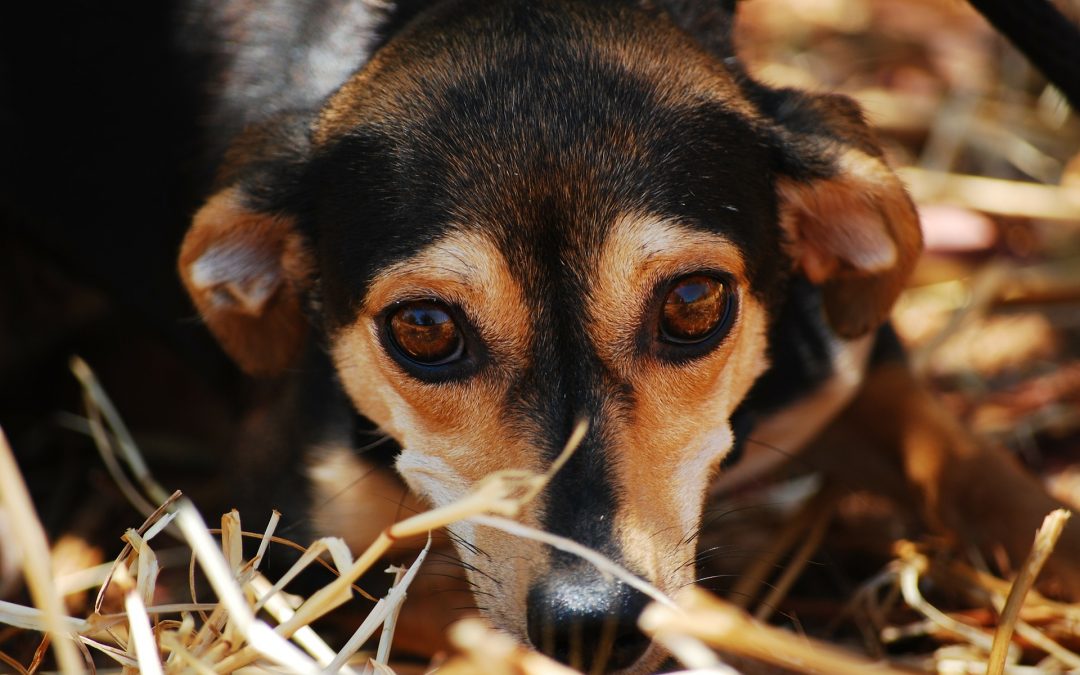We all know a dog is a man’s best friend. Turns humans and dogs are alike, suffering emotionally as well as physically in a lot of ways like us.
Today we are focusing on anxiety in dogs, what causes anxiety, what are the symptoms and of course, how to treat and prevent your best friend from being anxious.
Why Do Dogs Get Anxious?
Dogs get anxious just like us humans, the range of severity is extreme with different levels and behavioral patterns making it tough to diagnose anxiety.
The causes are similar to why humans get anxious. Worried about possible dangers in the future, both unknown or even imagined, usually associated with fear. There are many causes, including traumatic past events like abuse, noises, medical problems, intimidation from other animals.
Common Types Of Anxiety In Dogs
Separation anxiety: If your dog is used to having you, or others around all the time then being left alone can be scary and lonely making them insecure.
Noise anxiety: It’s totally normal for your pet to be scared of loud irregular noises like fireworks, thunder, and large trucks. They’re scary!
Travel anxiety: Your dog is likely used to his own bed and can stay put for long periods, but when that bed is moving, your dog may become nervous about what is happening and where he is going.
Confinement anxiety: Just like we get claustrophobic, if a dog feels locked in and trapped, they can get anxious.
Symptoms of Anxiety
There’s no formula for knowing when your dog is anxious or not, but the following is some behavior patterns that are common symptoms of dog anxiety.
Note: dogs are using body language to communicate, in their own style.
- Constant barking
- Destroying the house
- Yawning a lot
- Not eating anything
- Eating his own poo
- Aggressive behaviour
- High frequency of licking
- Trembling and/or shaking
- High heart rate
- Dilated pupils
How To To Prevent A Dog’s Anxiety Levels
Diagnosing anxiety for your dog isn’t easy, and treatment isn’t any easier. If you suspect your dog may be suffering from anxiety, it’s normally best to get a professional opinion from a dog trainer or vet and medication or supplements may need to be prescribed.
However, these are common ways to help reduce the anxiety levels.
Music: There is music that has been created for dogs, yup it’s true. This is great to keep playing when separation anxiety is occurring.
Essential Oils: There are also oils that you can rub onto your dogs back that are specific for pets.
Physical Contact: Do you notice the symptoms reduce when your pet your dog or stay near them? We all appreciate contact from others.
Exercise: Ever just needed to go for a run to get rid of unrequired energy? Your dog may just need this, letting everything release.
Timeout: Dogs can be overstimulated that get so anxious there’s no way to calm them down other than to eliminate all sound and distractions, think meditation.
Are You Anxious? Your dog may be getting signals that you’re anxious in which case they pick up on this and start being anxious too.
Seeing your dog suffering from anxiety isn’t easy as we can’t communicate verbally. If you think you can identify the cause of your pet’s anxiety, give a few of the solutions above a try. If they don’t help, it’s time to call in the experts for a long term solution.

